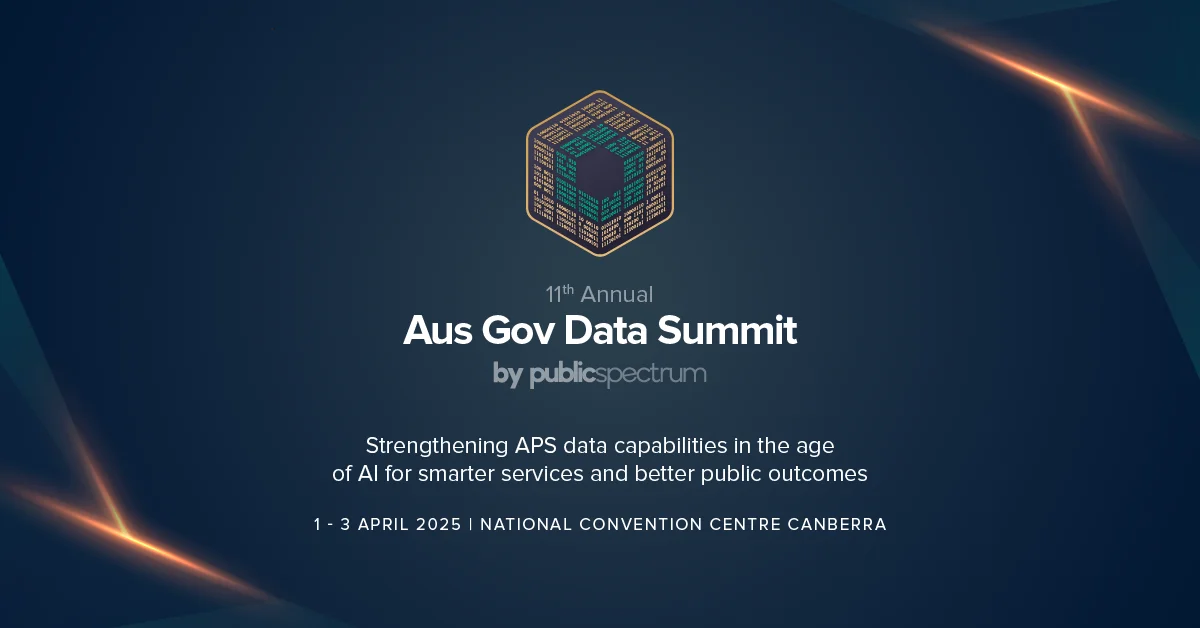AI transforms government data handling
Share

Australia’s public sector faces increasing challenges in managing digital information as government functions expand into artificial intelligence (AI), data analytics, and cloud storage. Digital governance evolves, requiring new strategies to address challenges such as cybersecurity, data modelling, and maintaining integrity.
The NSW Government’s analysis shows that poor information management significantly hampers accessibility, efficiency, and security. As data volume increases, outdated systems and various applications pose challenges. Public sector organisations must act quickly to protect valuable information and ensure compliance with governance standards.
Addressing digital information challenges
The public sector faces several primary challenges that impact the management of information:
- Legacy systems: People continue to use obsolete technologies, which creates inefficiencies and potential risks. “When tasks or responsibilities shift between agencies, reliance on older systems can lead to fragmented data,” emphasises the NSW Government’s guidelines on record risks. They must conduct timely system evaluations and execute strategic migrations to address this matter.
- Integration complexities: Platforms like Microsoft 365, Jira, and SharePoint have created silos that complicate efficient tracking and management of data. We propose creating an information asset register and using tools to consolidate essential data streams.
- Data accessibility and overload: Without clear policies for information retention and disposal, organisations face an overwhelming amount of data, which hinders accessibility. Using metadata and search technologies strategically improves retrieval processes and ensures alignment with operational requirements.
- Cybersecurity and data breaches: Cybersecurity threats pose a significant risk to sensitive data. The NSW government emphasises, “regular monitoring and robust access controls are vital for preventing unauthorised access and accidental changes.” Collaborating with cybersecurity teams ensures that policies align with privacy regulations.
- Cultural Resistance: Fostering a culture that prioritises information management is crucial. Training effectively and communicating transparently about data management procedures helps overcome resistance.
Implementing effective data governance
To address the challenges of digital information management in Australia’s public sector, they must implement the following strategic measures:
- Establish comprehensive data governance frameworks
Set clear data ownership, retention, and access rules. Set clear guidelines to ensure the lasting preservation of critical and high-value information while following regulatory requirements. Strong governance frameworks ensure consistent management of sensitive information across different systems.
- Leverage artificial intelligence and data science
Use advanced AI tools to streamline data classification, enhance forecasting capabilities, and detect possible risks. Generative AI enhances efficiency in tasks like document classification and metadata tagging, enabling human resources to focus on more valuable activities.
- Enhance cybersecurity and network security measures
Implement advanced cybersecurity measures that include encrypted cloud storage and multi-factor authentication. Regular audits and risk assessments are essential to pinpoint vulnerabilities. Collaborate with ICT and cybersecurity teams to establish robust protections against data breaches and unauthorised access.
- Modernise legacy systems and promote system integration
Transition from outdated legacy systems and adopt modern, scalable platforms. Unify workflows and data-sharing protocols to achieve smooth integration across various platforms, including Microsoft 365, Jira, and SharePoint. Execute a comprehensive data migration procedure and guarantee the preservation of detailed metadata to uphold data integrity.
- Prioritise high-risk and high-value data
Identify essential details crucial for legal, commercial, and community goals. Establish customised retention strategies for this data to ensure its availability and dependability long after its initial business application concludes. This strategy protects public confidence and ensures operations function seamlessly.
- Adopt proactive data lifecycle management
Establish protocols to organise the development, retention, and elimination of information. Automate solutions to detect and remove duplicate data, which decreases storage expenses and enhances accessibility. Regularly evaluate and update these guidelines to keep them aligned with evolving technology and policy requirements.
- Foster an information-centric organisational culture
Improve team comprehension of the importance of effective information management. Train staff to gain essential knowledge on optimal data management techniques, including effective record keeping and maintaining cybersecurity standards. Encourage a culture of responsibility across the organisation and seamlessly incorporate information governance into its core structure.
These strategies help Australia’s public sector efficiently manage its digital information while meeting legal and operational standards. By implementing these strategies, public sector organisations can protect data integrity, improve service delivery, and strengthen resilience in a rapidly changing digital environment.
Enhancing digital government impact
Effective handling of digital information plays a crucial role in modern public sector operations, directly influencing data management and digital government initiatives. Public sector entities can tackle the issues of obsolete systems, fragmented data, and security vulnerabilities to fully harness their data, foster innovation, elevate service delivery, and strengthen public confidence.
A proactive strategy manages digital information to ensure data stays accessible, accurate, secure, and compliant with regulatory standards. Advanced technologies, like artificial intelligence (AI) and data analytics, enable public sector organisations to automate data classification, identify high-risk or high-value information, and make informed decisions in real time. This matter gains importance with generative AI, which opens up opportunities for innovation but also introduces new risks that demand effective mitigation through robust cybersecurity and data governance strategies.
These strategies influence far more than just operational efficiency. Public sector entities cultivate an environment of responsibility and openness to establish confidence with the community and interested parties. Transparent policies on data retention and disposal mitigate the risk of data breaches and demonstrate a commitment to ethical data practices. Enhanced network security measures and partnerships with ICT and cybersecurity teams safeguard sensitive information from emerging threats.
The public sector must remain agile, continually adapting to the evolving digital landscape. Adopting AI and data analytics tools, enhancing cybersecurity measures, and promoting a culture of data governance will address the challenges of managing large volumes of information. Prioritising the integrity and accessibility of high-risk, high-value data is crucial to guarantee its protection and usability for the long term.Australia’s public sector operations depend on how effectively it manages digital information. Public sector organisations can improve their efficiency, compliance, and responsiveness by directly addressing challenges through system upgrades, adopting AI innovations, and strengthening their data security measures. These strategies enhance internal operations and ensure that the public sector provides transparent, high-quality services to Australians now and in the future.
Public Spectrum is the first knowledge-sharing platform in Australia to embrace the entire public sector. This website is a platform where you can connect, collaborate, empower, inspire, and upskill with public sector professionals.























wonderful points altogether, you just gained a new reader. What would you suggest in regards to your post that you made some days ago? Any positive?